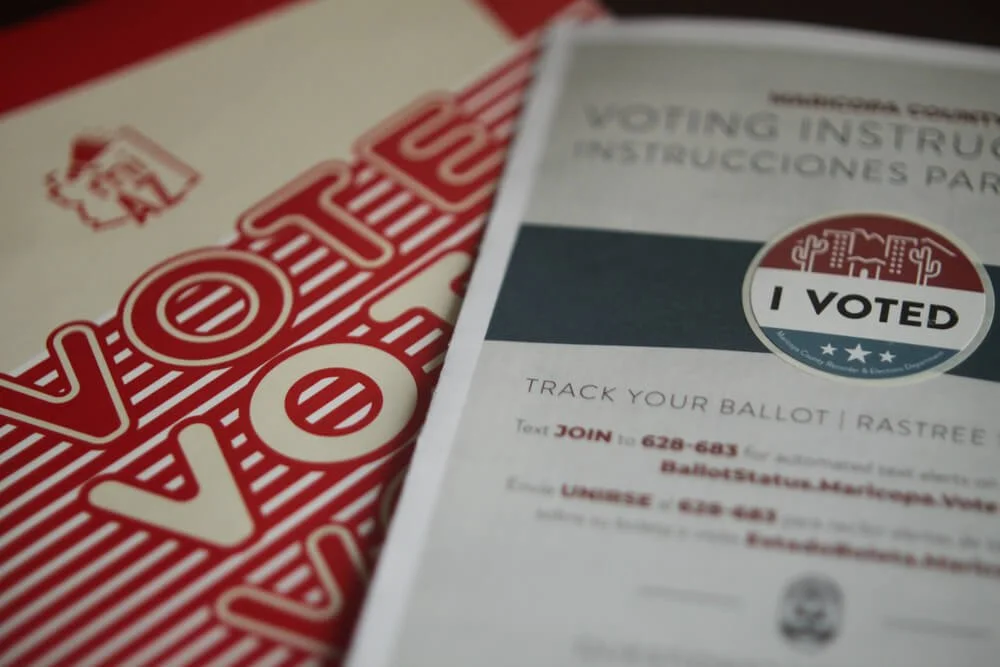Tomorrow's Workforce: Why the APS Foundation Stays Loyal to STEM Education in Arizona
/photo: Monkey Business Images/shutterstock
The APS Foundation, the grantmaking arm of the Arizona Public Service Company, the largest electric company in the state, is staying committed to its mission of boosting STEM education with a conscious focus on diversity and an exploration of workforce development. This foundation has invested over $44 million to these causes since 1981 and recently gave $1 million to an ongoing professional development initiative. As we’ve covered, investing in STEM education is a popular focus of corporate funders.
The majority of the APS Foundation's grants go to STEM educational opportunities for teachers, so they can effectively convey these concepts to their students. The $1 million gift went to the Arizona Science Center’s Rural Communities Expansion Project, which launched in 2012 to provide STEM professional development opportunities for K-8 teachers in rural Arizona schools, where these types of opportunities have “been historically limited,” Mallory Savan Lebovitz, the foundation's senior corporate giving specialist, tells us.
The APS Foundation partners with the Arizona Science Center for this program, in which science center staff deliver professional development for teachers, administrator training, and for students, hands-on projects and full-day or evening “STEM Extravaganzas.” The APS Foundation has already invested more than $2 million into the program that has served more than 400 teachers, 10,500 students, and 21 administrators from 15 schools. The new funds will back the project for another five years and expand it to two more counties; it currently serves nine.
One of the APS foundation's overarching concentrations is on STEM learning as a job-readiness approach that can benefit both local youth and the Arizona economy. It believes it is preparing students to compete in a new, ever more technologically-driven world.
“A workforce proficient in [STEM] skills is critical to retaining and attracting high-quality businesses and industries to the state,” the APS Foundation site states. Lebovitz says Arizona’s technology sector is projected to grow significantly in the next decade and that “what middle-schoolers will be doing 10 to 15 years from now may not even exist.” Google CEO Sundar Pichai made a similar observation in 2017 when he described his company's 5-year, $1 billion philanthropic plan, which naturally includes a focus on STEM education.
“By 2020, one-third of jobs will require skills that aren’t commonly found in today’s workforce,” Pichai wrote.
So, along with focusing explicitly on K-12 initiatives, the APS Foundation is now “exploring how workforce development plays a role in our portfolio," says Lebovitz. "Still, I would argue that it’s related to supporting quality STEM education programs, so it wouldn’t be moving dramatically away from our mission.”
And, like many STEM companies and funders who have come to recognize the lack of heterogeneity and inclusion in their industries and fields, this nonprofit believes it’s important to reach all students in their educational funding efforts. Lebovitz says:
Diversity in any field is critical—however, because innovations resulting from STEM touch every aspect of human life, it is even more imperative that those involved represent the very communities and populations that are impacted by scientific progress. The problems of tomorrow will be complex, we will need a variety of perspectives to solve them.
As we’ve also previously reported, future job growth in the U.S. may be less broadly distributed than an overarching STEM category suggests and more specific to certain geographic areas and fields, like computer science.
What is the outlook for STEM professions in Arizona? The answer is complex and evolving. While the trade, transportation, and utilities, and education and health service industries employ the most people in the state, professional and business services come in third, and these include professional, scientific, and technical services. Of course, STEM, and specifically tech skills, are needed throughout other top industries as well.
Lebovitz feels one of the main misconceptions her foundation works to correct is that STEM is “static” and that its concepts only apply to students who want to become engineers.
“STEM is everywhere,” she says, adding that it would be difficult to find a current APS employee who doesn’t rely on STEM skills.
A June 2018 report from a trade group called the Arizona Technology Council states, “Over half of all technology jobs are not in the technology sector at all, but many are in-house positions at companies representing nearly every industry on the map.” It also finds that computer-systems design, aerospace products and parts manufacturing, and semiconductor manufacturing now represent “roughly half” of the state’s annual wage totals. The Arizona Commerce Authority shares that there are more than 132,000 tech jobs in the state, and that top sectors include electronics, semiconductors, aerospace and defense, and software and IT.
Lebovitz also tells us, “Arizona’s technology jobs will grow 21 percent by 2027,” citing a 2017 Economic Modeling Specialists report sourced from STEMWorks, underlining one reason the APS Foundation is staying on course with local STEM education funding.
The foundation is currently looking for new grantees—the 2018 fall cycle closes Sept. 1. A spring cycle also typically opens for applications in mid-January.
“We want to support STEM programs that reach geographically and/or demographically underserved populations, demonstrate impact, and that consider program sustainability in their proposal,” Lebovitz says. APS also has a corporate giving arm, independent of its foundation, which encompasses many other nonprofit issue areas in Arizona.







































